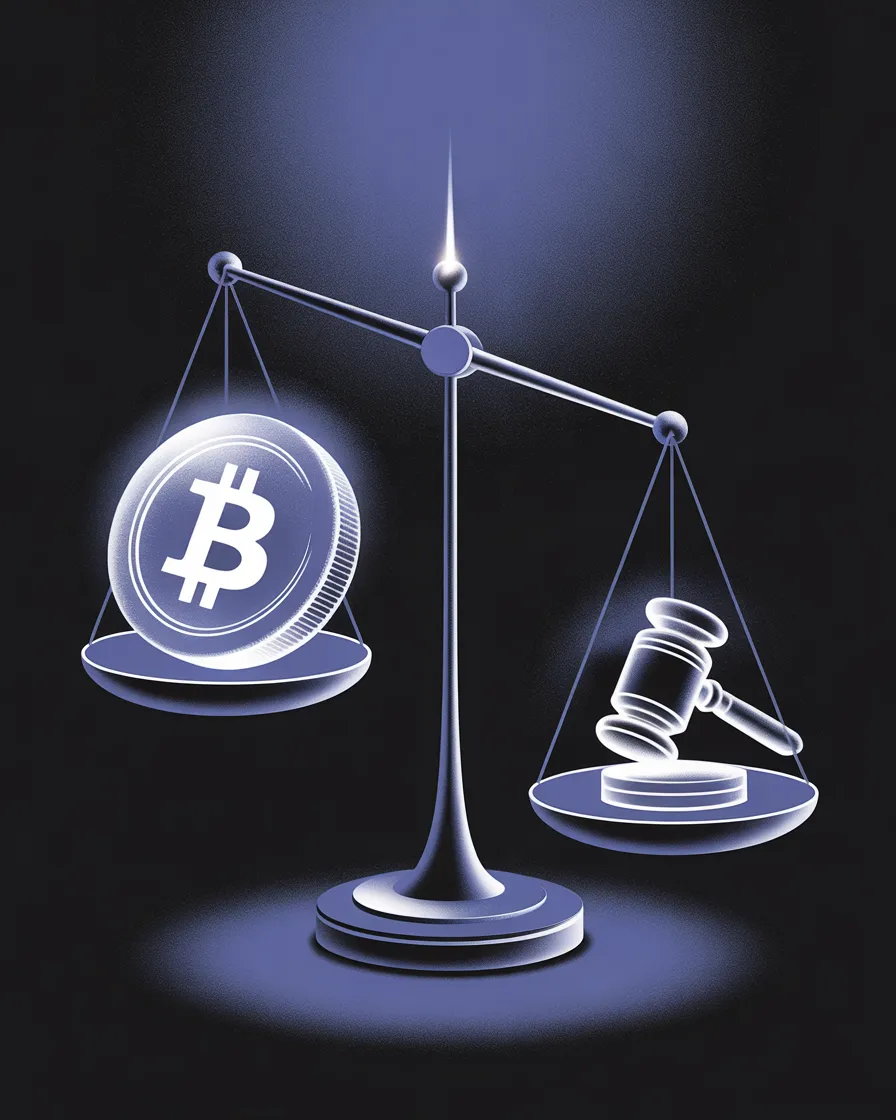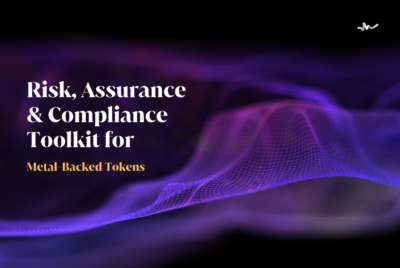Comparative Regulatory Analysis and Recent UAE Crypto Sector Developments
Areas of Convergence (Hypothetical US BITCOIN Act vs. UAE Framework)
Public Sector Support for Innovation: Both frameworks implicitly or explicitly aim to foster innovation while managing risks. The hypothetical BITCOIN Act's title signals encouragement of U.S. innovation, framing Bitcoin as an innovation driver. Similarly, the UAE positions itself as a friendly jurisdiction for crypto innovation, with VARA tasked to advance Dubai as a global hub. Both see strategic advantage in embracing aspects of the crypto economy.
Acknowledgement of Bitcoin’s Store-of-Value Role: The U.S. Act emphasizes Bitcoin's analogy to gold. While UAE regulations don't make normative statements, regulating and licensing Bitcoin trading (by VARA, SCA, DFSA) implies acceptance of its value as a legitimate asset class suitable for investment and custody under proper controls.
Security and Custody Emphasis: The U.S. Act mandates state-of-the-art security for the Strategic Bitcoin Reserve. UAE's regime sets detailed custody standards for private VASPs (secure wallets, key safety, insurance). Both prioritize robust security to build trust.
Transparency and Reporting: The U.S. Act's Proof-of-Reserve is about government transparency. The UAE achieves transparency through regulatory disclosure (VASP lists, approved tokens) and supervisory visibility (expecting VASPs to use on-chain monitoring).
Alignment with International Standards: Both reference or incorporate global best practices like FATF standards (AML/CFT, Travel Rule). Both jurisdictions are implementing these, though the UAE's unified VASP regime may align more directly than the fragmented U.S. approach. Both also show elements of technology-neutral regulation principles.
Areas of Divergence (Hypothetical US BITCOIN Act vs. UAE Framework)
Regulatory Focus – Public vs. Private: The U.S. Act regulates federal agencies and government Bitcoin holdings. It does not directly regulate the private crypto industry. The UAE’s framework squarely regulates private sector VASPs (exchanges, brokers, issuers). The U.S. lacks a unified national legal framework for VASPs equivalent to the UAE's.
Regulatory Philosophy – Prescriptive vs. Principles-Based: UAE regulations (VARA, SCA) are quite prescriptive and granular. The U.S. Act reads more like a high-level strategic plan, leaving implementation details to agencies. Generally, U.S. crypto regulation relies on adapting broad existing laws (securities, commodities) rather than detailed new crypto rules.
Treatment of Cryptoassets – Government Investor vs. Government Regulator: The U.S. Act positions the government as a market participant (holder/investor). The UAE government positions itself primarily as a market regulator and facilitator for the private sector. The UAE isn't legislating national crypto accumulation.
Scope of Assets Covered: The U.S. Act focuses strictly on Bitcoin. UAE regulations cover a broad range of virtual assets (utility tokens, security tokens, stablecoins, NFTs).
Regulatory Architecture – Unified vs. Multiple Agencies: The UAE has multiple regulators but with clear domains and increasing coordination (SCA/VARA). U.S. crypto regulation is split among SEC, CFTC, FinCEN, and state regulators, often with overlap or gaps. The BITCOIN Act adds Treasury without resolving existing fragmentation.
International Engagement: The UAE framework emphasizes alignment with global standards and attracting international business. The U.S. Act is domestically oriented, not focusing on international regulatory coordination (though holding Bitcoin could have global implications).
Alignment with International Regulatory Best Practices
FATF: Both UAE and US adhere to FATF AML/CFT standards in practice. The UAE has a clear, unified VASP licensing and supervision regime aligned with FATF recommendations. The U.S. enforces AML rules vigorously but lacks a single federal VASP registration framework.
EU MiCA: The UAE’s VASP regime (SCA/VARA) is broadly similar in scope and requirements (licensing, consumer protection, capital) to MiCA, aiming for comprehensive oversight. The U.S. BITCOIN Act has no parallel in MiCA. The U.S. currently lacks a MiCA-equivalent comprehensive framework for the private crypto market.
U.S. SEC/CFTC Approach: The U.S. relies heavily on enforcing existing securities/commodities laws ("regulation by enforcement"), leading to uncertainty. The UAE has proactively passed specific crypto laws, providing more statutory clarity. The BITCOIN Act doesn't change the U.S. enforcement landscape for private firms. The UAE also utilizes regulatory sandboxes more formally than the U.S. federal level.
Policy Recommendations and Strategic Insights
For Legal Professionals:
- Master jurisdictional nuances (UAE federal vs. free zones; US federal vs. state).
- Advise on strategic jurisdiction selection but caution against viewing any as a 'lax' haven; global standards (AML) apply broadly.
- Develop multi-jurisdictional compliance programs meeting the highest applicable standards (e.g., Travel Rule, asset segregation).
- Ensure contractual clarity on issues like forks, custody, and liability.
For Institutional Investors:
- Conduct thorough regulatory due diligence on platforms and assets, preferring licensed entities in reputable jurisdictions like the UAE.
- Prioritize secure custody solutions, possibly diversifying custodians or locations, drawing lessons from the U.S. Act's approach.
- Factor potential sovereign crypto actions (like U.S. reserve management) into market analysis and risk management.
- Invest in robust internal compliance capabilities (analytics, monitoring).
For Regulators and Policymakers:
- Consider unified frameworks (like UAE or MiCA) to provide clarity and competitiveness (lesson for the U.S.).
- Foster international collaboration to harmonize standards and prevent illicit activity.
- Maintain dynamic regulation and utilize sandboxes to adapt to rapid innovation (both jurisdictions).
- Ensure adequate supervisory resources and technology (SupTech/RegTech).
- Address emerging risks like stablecoins, DeFi leverage, and TradFi interconnections.
Shared Considerations: Both public (like the U.S. reserve) and private entities need robust security, contingency planning (multi-sig, key management), and potentially insurance against crypto-related losses.
Long-Term Strategy: The U.S. needs to consider the intersection of a national crypto reserve with monetary policy and financial stability. The UAE needs to sustain its regulatory lead by refining rules, consolidating regimes where appropriate, and ensuring effective supervision as the market scales.
Conclusion (Comparative Analysis)
The hypothetical U.S. Strategic Bitcoin Reserve Act and the UAE’s digital asset regulations exemplify pioneering yet different paths. The U.S. contemplates treating Bitcoin as a national strategic asset, focusing on government accumulation and security. The UAE focuses on creating a comprehensive regulatory ecosystem for private sector innovation, emphasizing licensing, market integrity, and alignment with global standards. Both approaches acknowledge the growing importance of digital assets. A successful global framework likely requires elements of both: strategic vision for national economic benefit and robust micro-level regulation for market safety. Stakeholders should navigate this evolving landscape with proactive compliance, international awareness, and adaptability.
Recent Regulatory Developments in the UAE (2024-2025 Updates)
The UAE has continued to solidify its position as a crypto hub through active regulation. Dubai’s VARA issued stricter marketing and advertising standards with significant fines for non-compliance. Federally, the SCA rolled out comprehensive VASP guidelines in 2024, implementing Cabinet Resolution No.111 of 2022 and aligning mainland rules with international expectations. Free zones like DIFC and ADGM maintain their specialized regimes. Authorities also provided tax clarity, exempting virtual asset transfers from VAT in late 2024. Furthermore, the Central Bank of the UAE introduced regulations for stablecoins, including paving the way for a potential AED-backed digital Dirham.
Major Crypto Business Moves in the UAE’s Sector
Attracted by regulatory clarity, major global players expanded in the UAE. In March 2025, Crypto.com received VARA approval for crypto derivatives trading in Dubai, targeting institutional clients initially. European platform Bitpanda also secured in-principle approval from VARA, designating Dubai as a global hub for its expansion. These moves highlight international confidence in the UAE market's potential and regulatory framework.
Institutional Adoption and Partnerships in UAE
Mainstream financial institutions are integrating digital assets. Emirates NBD launched crypto trading for retail customers via its Liv app, partnering with Aquanow and Zodia Custody. Digital bank Zand collaborated with Swiss firm Taurus to develop custody and tokenization services. Additionally, M&A activity heated up, with India’s CoinDCX acquiring local exchange BitOasis to enter the region. These developments signify growing institutional comfort and integration of crypto within the traditional financial system.
Global Regulatory Trends and Impact on UAE Firms
International regulatory shifts influence the UAE. The EU’s MiCA becoming effective means UAE firms targeting Europe face higher compliance bars. Competition from other crypto hubs like Hong Kong and Switzerland pushes the UAE to continually refine its framework. Concurrently, regulatory uncertainty or crackdowns elsewhere (notably in the U.S. with SEC actions) have driven firms like Coinbase to consider the UAE as a favourable international base, boosting the local ecosystem.
DeFi, NFTs, and Tokenized Assets – Emerging Trends in the UAE
Beyond exchanges, the UAE shows strong adoption of newer crypto trends. DeFi usage is high, particularly among institutional players. The NFT market is thriving, with significant revenue generation and projections, supported by events like Art Dubai and projects in the DMCC Crypto Centre. Tokenization of real-world assets (RWA) is also gaining traction, with banks like Zand preparing to offer tokenized securities and pilot projects exploring tokenized bonds and property under regulatory guidance. This diversification strengthens the UAE's position as a holistic digital asset innovation hub.
Disclaimer: This article provides general information and does not constitute legal advice. Consult with qualified legal counsel for advice specific to your situation.





